| Strain Name |
C57BL/6-Ccr8tm1(CCR8)Bcgen/Bcgen
|
Common Name | B-hCCR8 mice |
| Background | C57BL/6 | Catalog number | 110096 |
|
Related Genes |
C-C motif chemokine receptor 8; CY6; TER1; CCR-8; CKRL1; CDw198; CMKBR8; GPRCY6; CMKBRL2; CC-CKR-8 |
||
|
NCBI Gene ID |
12776 | ||
mRNA expression analysis
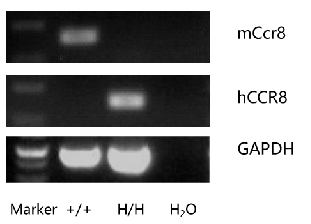
Protein expression analysis
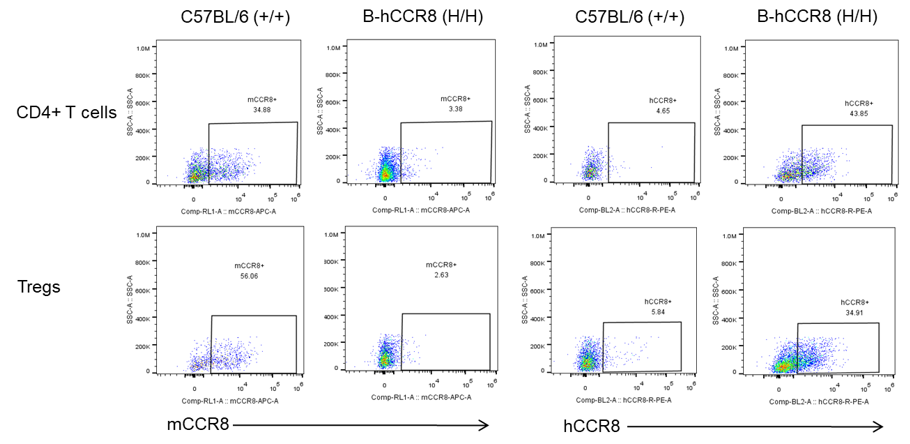
Leukocytes cell subpopulation and CCR8 expression analysis in spleen, thymus,
and blood of B-hCCR8 mice (non-tumor bearing)
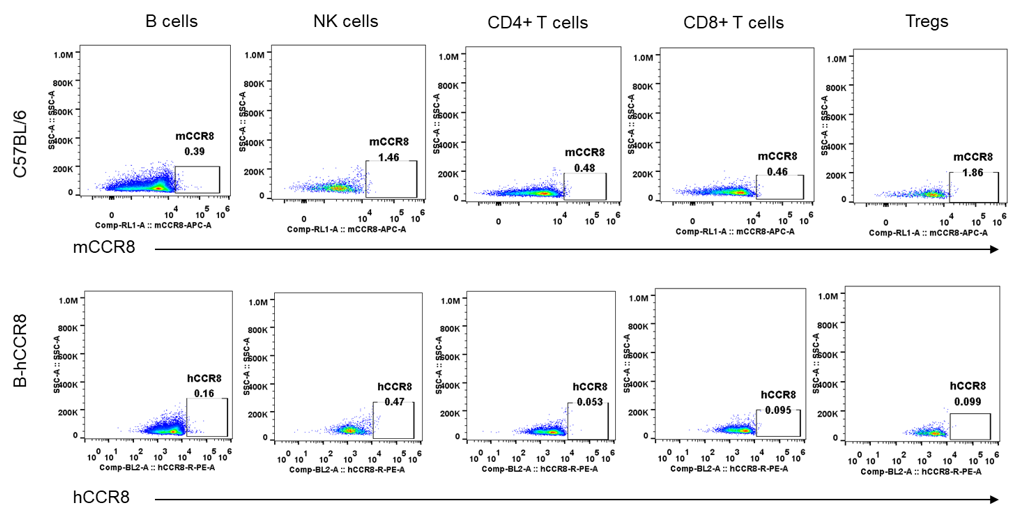
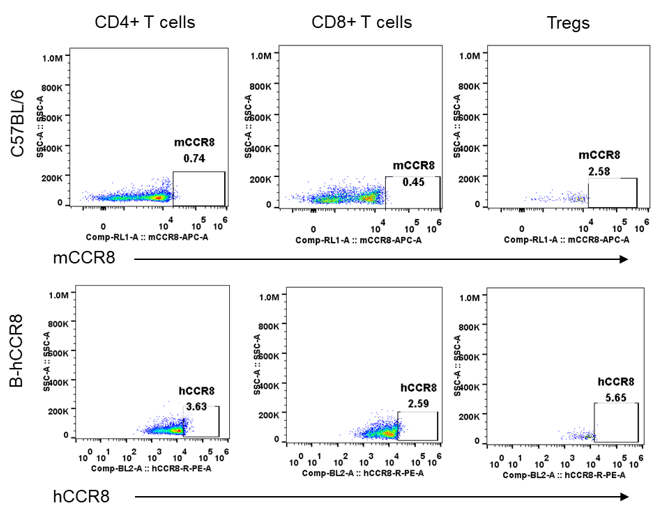
Strain specific analysis of CCR8 gene expression in B-hCCR8 mice by FACS. Thymus was isolated from the mice, and analyzed by flow cytometry. Human and mouse CCR8 were not expressed neither in thymocytes of wild-type mice nor B-hCCR8 mice separately.
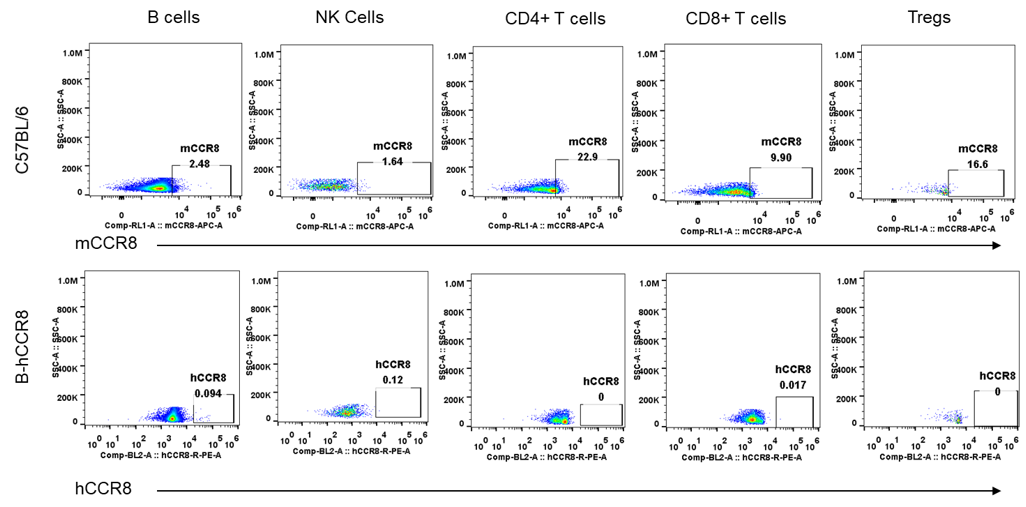




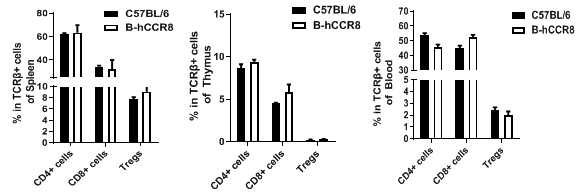
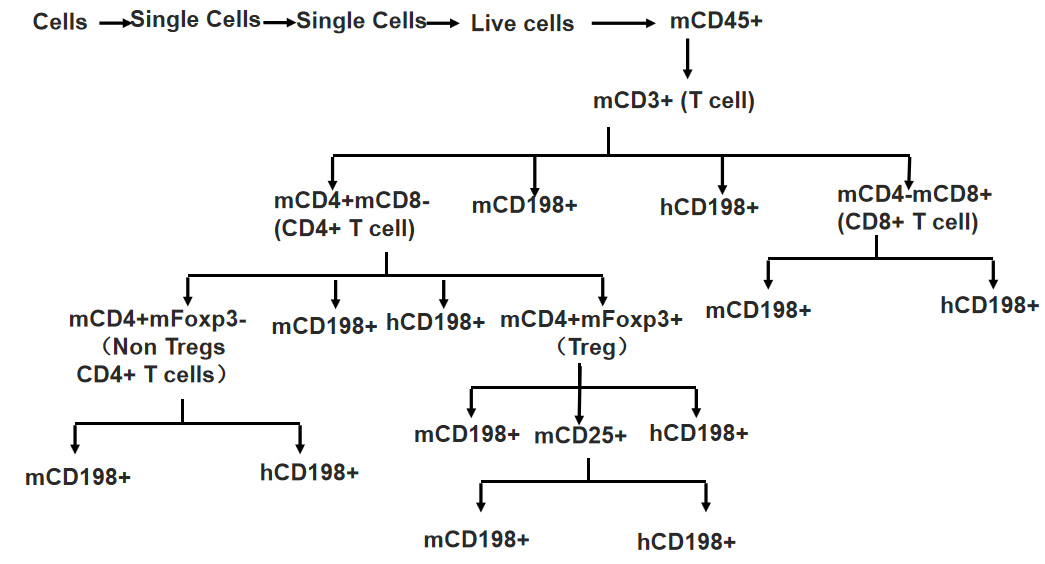
Protein expression analysis of mouse and human CCR8 in tumor




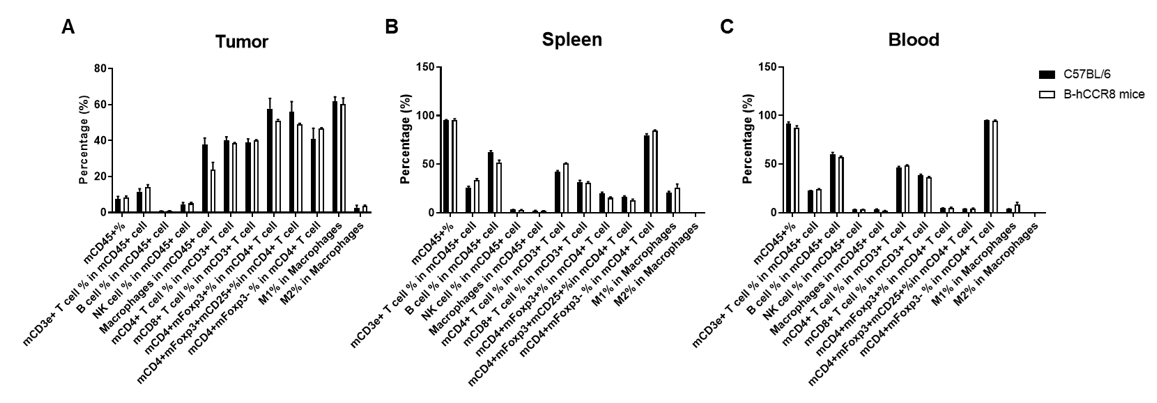

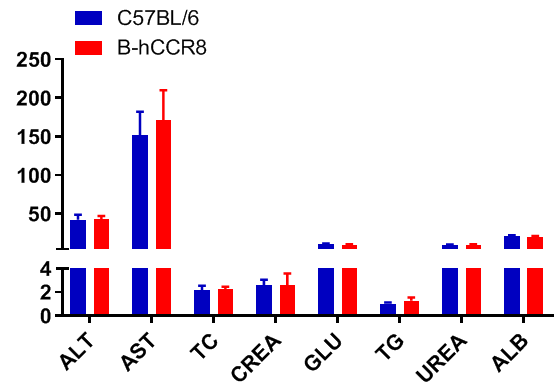
In vivo efficacy of anti-human CCR8 antibody
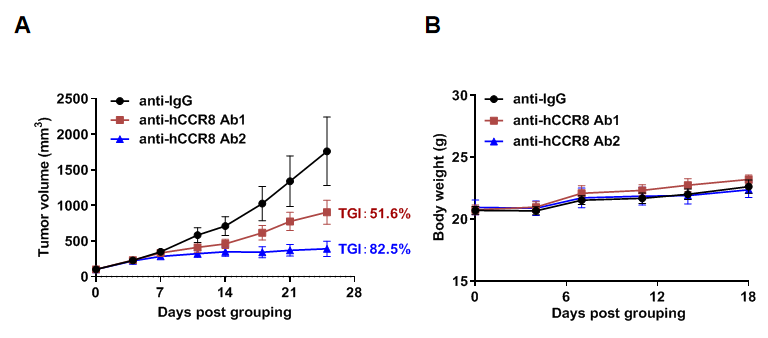
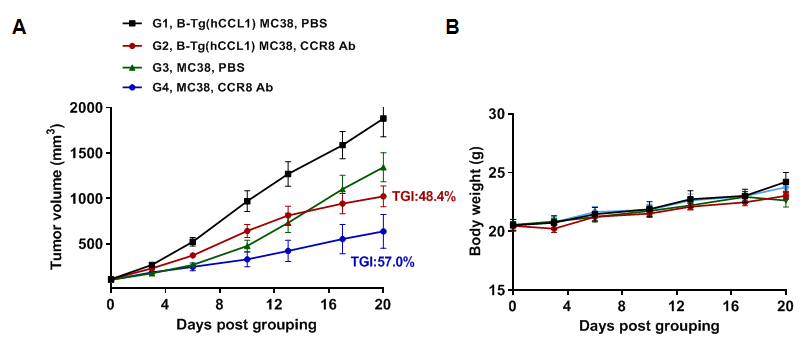
Antitumor activity of anti-human CCR8 antibody in B-hCCR8 mice. (A) Anti-human CCR8 antibody get from cooperation company inhibited MC38 tumor growth in B-hCCR8 mice. Murine colon cancer MC38 cells were subcutaneously implanted into homozygous B-hCCR8 mice (female, 8 week-old, n=7). Mice were grouped when tumor volume reached approximately 100 mm3, at which time they were treated with anti-human CCR8 antibody. (B) Body weight changes during treatment. As shown in panel A, anti-human CCR8 antibody were efficacious in controlling tumor growth in B-hCCR8 mice. B-hCCR8 mice provide a powerful preclinical model for in vivo evaluation of anti-human CCR8 antibody. Values are expressed as mean ± SEM.
Tumor infiltrates lymphocytes analysis
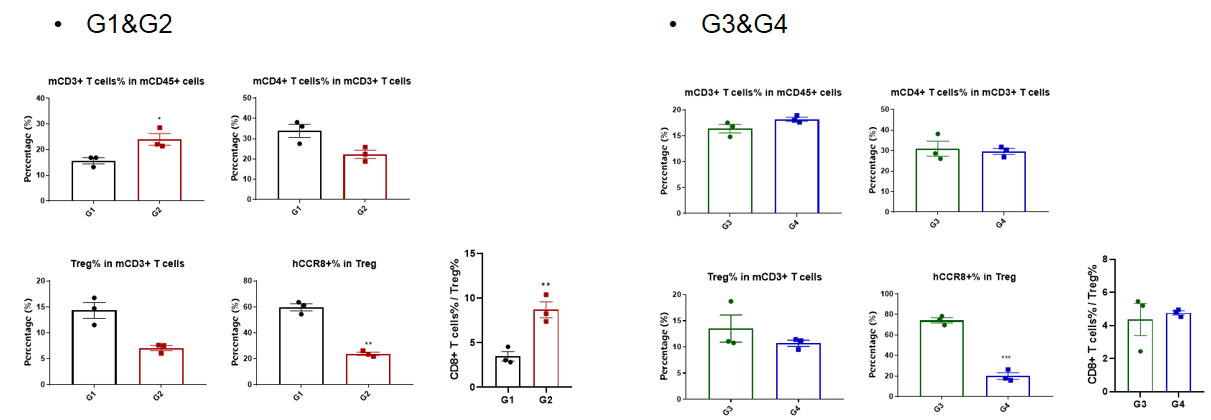
Analysis of tumor infiltrates lymphocytes by FACS.TILs were harvested at the endpoint of the experiment and flow cytometry analysis was performed to assess the leukocyte subpopulations. The percent of CCR8+ Treg cells were significant decrease in anti-human CCR8 antibody treatment group (G2, G4), and the ratio CD8+ T cells to Treg cells increased significantly in G2, but not in G4. (*p<0.05, **p<0.01, ***p<0.001, ****p<0.0001)
- Guo C, Dai X, Du Y, Xiong X, Gui X. Preclinical development of a novel CCR8/CTLA-4 bispecific antibody for cancer treatment by disrupting CTLA-4 signaling on CD8 T cells and specifically depleting tumor-resident Tregs. Cancer Immunol Immunother. 2024 Aug 9;73(10):210. doi: 10.1007/s00262-024-03794-3. PMID: 39123089; PMCID: PMC11315865.
 苏公网安备:32068402320845号
网站建设:北京分形科技
苏公网安备:32068402320845号
网站建设:北京分形科技






 010-56967680
010-56967680 info@bbctg.com.cn
info@bbctg.com.cn